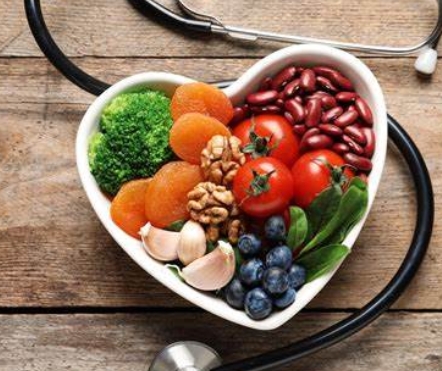A healthy diet is one of the most important factors in maintaining optimal health and well-being. However, eating nutritious foods doesn’t have to be complicated. By focusing on balanced meals and making mindful choices, you can easily nourish your body and feel more energized throughout the day. Here are some simple yet effective strategies to help you improve your diet and support your health.
One of the cornerstones of a healthy diet is variety. Including a wide range of nutrient-dense foods ensures that your body gets all the vitamins, minerals, and antioxidants it needs to function at its best. Aim to fill your plate with whole foods such as fresh fruits and vegetables, lean proteins, whole grains, and healthy fats. These foods are rich in nutrients that support various bodily functions, from boosting immunity to maintaining strong muscles and bones.
Fruits and vegetables should take center stage in your daily meals. These foods are high in vitamins, minerals, and fiber, which are essential for supporting your overall health. Try to include a variety of colors in your meals—each color represents different nutrients that benefit different aspects of health. Green vegetables like spinach, broccoli, and kale are packed with vitamins A, C, and K, while red and orange vegetables like carrots, tomatoes, and bell peppers are rich in antioxidants and beta-carotene. Don’t forget about fruits as well—berries, citrus fruits, and apples are packed with vitamins and antioxidants that help fight inflammation and protect your cells from damage.
Protein is another essential component of a balanced diet. It is vital for muscle repair, immune system function, and overall cellular health. While animal proteins like chicken, fish, and eggs are excellent sources, plant-based proteins such as beans, lentils, chickpeas, tofu, and quinoa are also great options. These plant proteins provide fiber, which supports digestion and helps you feel fuller longer. By including a variety of protein sources in your meals, you ensure that you’re getting all the essential amino acids your body needs.
Healthy fats are an important part of your diet, despite the misconception that all fats are bad. Healthy fats are crucial for supporting brain function, promoting heart health, and helping your body absorb essential vitamins. Include sources of healthy fats in your meals such as avocados, nuts, seeds, olive oil, and fatty fish like salmon and sardines. These fats are rich in omega-3 fatty acids, which have anti-inflammatory benefits and contribute to overall well-being.
Carbohydrates are another important component of a healthy diet, but it’s important to focus on complex carbs rather than refined sugars and grains. Whole grains like quinoa, brown rice, oats, and barley are great sources of fiber, which helps with digestion and stabilizes blood sugar levels. These slow-digesting carbs provide sustained energy throughout the day, unlike refined carbs, which can lead to energy crashes and cravings.
Staying hydrated is essential for maintaining health and energy levels. Water is necessary for every function in your body, from digestion to temperature regulation. Make sure to drink enough water throughout the day to stay hydrated—aim for about 8 glasses a day, but adjust based on your activity level and climate. Herbal teas and infused water with fresh fruits like lemon or cucumber are excellent alternatives to plain water and can help keep you refreshed.
Mindful eating can also make a big difference in how your body absorbs nutrients and how satisfied you feel after meals. Slow down and savor each bite. Eating without distractions such as watching TV or using your phone can help you focus on the flavors and textures of your food. This practice not only improves digestion but also helps prevent overeating by allowing you to tune in to your body’s hunger cues.
While it’s important to focus on healthy foods, moderation is key when it comes to treats. It’s okay to indulge in your favorite snacks or comfort foods occasionally, as long as it’s done in moderation. The key is to make nutrient-rich foods the foundation of your diet and to enjoy treats as part of a balanced approach to eating.
Building a healthier diet doesn’t require perfection, but small, intentional changes can lead to lasting improvements in your health. By prioritizing whole, unprocessed foods, balancing your macronutrients, staying hydrated, and practicing mindful eating, you can nourish your body and feel more energized and vibrant every day.





